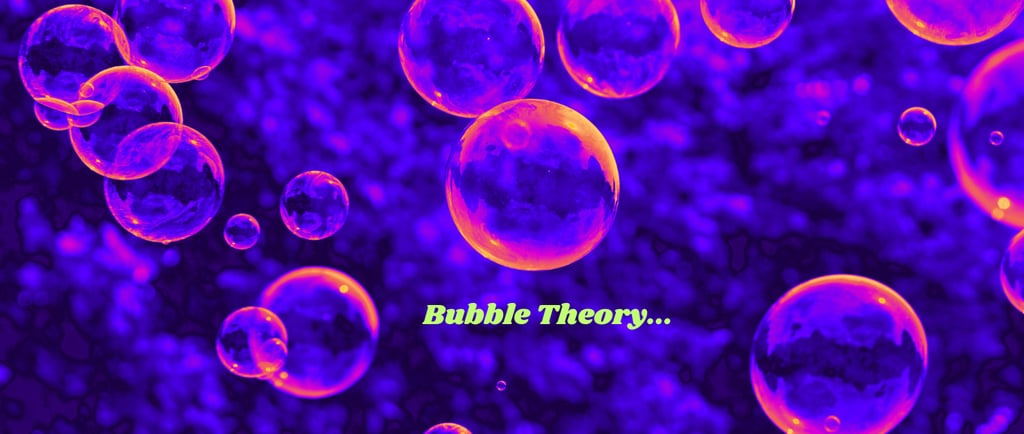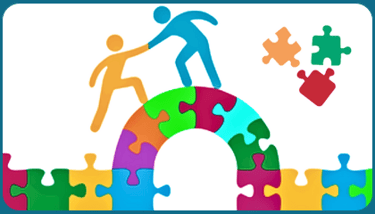Are People Really Stupid... or Just Misunderstood?
Here is your sign... The death of the social contract and advent of bubble theory...
HUMANITYPERSPECTIVE
Mark Boatwright-Frost
10/27/20244 min read


The Nature of Stupidity: A Reflection on Human Behavior
The concept of stupidity is often perceived negatively, connoting a lack of intelligence or awareness. However, a more nuanced understanding suggests that stupidity is a universal human trait, experienced by all individuals at various points in their lives. Rather than being a definitive assessment of one’s intellect, the behaviors branded as 'stupid' typically arise from a complex interplay of context, emotions, and social pressures.
Moreover, social pressure and situational factors can compel individuals to behave in ways they might not otherwise choose. Peer influence, societal expectations, or an urgent need to conform to group norms can push individuals toward choices that might seem illogical or foolish. The term 'stupidity' may fail to account for the various external factors that contribute to behaviors perceived as lacking intelligence.
In recognizing our shared capacity for moments of confusion or folly, we foster an environment of understanding and compassion. Rather than categorizing such instances as true reflections of a person's intellect, it is beneficial to view them as transient episodes influenced by circumstances. This perspective encourages a more empathetic view of human behavior, allowing individuals to acknowledge their own experiences without harsh self-judgment. Embracing the idea that everyone is fallible can ultimately lead to a deeper understanding of human nature, fostering a culture of acceptance and support.
Isolation and Its Impact on Decision Making
In today’s increasingly connected yet paradoxically isolating world, the culture of isolation significantly affects decision-making processes and contributes to the perception of stupidity among individuals. Many people find themselves living in personal bubbles, where immediate needs and individual preferences often overshadow collective well-being. This phenomenon is particularly evident in the context of social media and technology, which, while designed to foster connections, tend to promote a form of social estrangement.
The advent of social media platforms has led to the creation of digital environments where individuals are more inclined to engage with like-minded peers. Such echo chambers reinforce existing beliefs by filtering out diverse perspectives. As users are continuously exposed to similar viewpoints, they become increasingly resistant to alternative ideas. This lack of exposure to a wide range of thoughts and experiences can diminish critical thinking skills, leading to poor decision-making. When individuals are not challenged by differing opinions, their ability to evaluate information objectively diminishes, contributing to decisions that may be perceived as unwise or imprudent.
Moreover, this isolation underscores a collective inability to empathize or understand varying viewpoints, resulting in misjudgments that can be interpreted as stupidity. The prevalence of sensationalist or emotionally charged content further exacerbates this problem, distracting individuals from rational analysis. In such settings, the weight of responsibility for making informed choices shifts from the individual to external societal influences, ultimately reinforcing a cycle wherein isolated decision-making thrives amid a lack of healthy discourse.
In light of these trends, it is crucial to recognize the role of societal structures in shaping individual cognition. By examining how isolation impacts decision-making, we gain insights into the broader implications of our interconnected yet lonely world, paving the way for more inclusive and informed dialogue in the future.
The Role of Personal Responsibility in Our Actions
Personal responsibility plays a critical role in shaping our actions and, in turn, influencing our decision-making processes. At its core, personal responsibility entails being accountable for one's choices, acknowledging the repercussions of those decisions, and taking ownership of outcomes, whether positive or negative. In an era marked by increasing complexity, the failure to embrace this responsibility can contribute to a culture often perceived as ignorant or obstinate.
When individuals neglect personal accountability, they may become disconnected from the consequences of their actions, fostering a wider culture of irresponsibility. This lack of accountability can lead to a systemic breakdown in social contracts—an unwritten agreement that prescribes behavior norms and establishes mutual respect among individuals within a society. As these societal bonds weaken, the collective disregard for the implications of our choices becomes more pronounced, allowing irresponsible decisions to proliferate.
Moreover, without a strong sense of personal responsibility, individuals may resort to blaming external factors for their circumstances, thereby sidestepping the introspection necessary for growth. This behavior creates a cycle of ignorance, where individuals might dismiss valuable life lessons, perpetuating an environment that not only tolerates but encourages poor decision-making. In this context, people often resort to simplistic explanations for complex issues, further entrenching the notion that intelligence is a relative concept, rather than recognized as a reflection of one's choices and actions.
In contrast, cultivating personal responsibility empowers individuals to reclaim control over their destinies. By encouraging an environment founded on accountability, societies can begin to counter the perceived epidemic of stupidity, recognizing instead that misunderstandings often stem from an absence of responsibility. An emphasis on personal responsibility serves not only as a remedy for individual actions but also as a catalyst for societal change.
Education and Cultural Messaging: Barriers to Critical Thinking
The relationship between education and critical thinking is multifaceted, significantly influenced by cultural messaging. Traditional education systems often emphasize rote learning and examinations, primarily focusing on information retention rather than encouraging analytical skills and evaluative thinking. Consequently, this potentially stifles the development of critical thinking abilities necessary for assessing the validity of information and discerning the truth within the myriad of narratives encountered daily.
Moreover, cultural narratives surrounding intelligence and education can further hinder critical thought. Many societies celebrate conformity and uniformity over individuality and critical analysis, which discourages questioning and independent reasoning. When educational institutions prioritize standardized testing and curriculum uniformity, they may inadvertently propagate a culture in which students are not motivated to engage in deeper learning or challenge prevailing views. This cultural conditioning may result in individuals being more receptive to misinformation, as they may not possess the skills required to scrutinize varying narratives effectively.
The proliferation of misinformation in the digital age exacerbates these issues, creating a challenging environment for individuals navigating complex information landscapes. Misinformation is not only rampant but often sensational, making it more appealing and easier to consume than factual content. An informed society is one that can discern reputable sources from unreliable ones, but this requires an educational framework that fosters comprehensive information literacy and critical evaluation skills.
To combat these barriers, educational frameworks should undergo significant review and redesign. Emphasizing critical thinking, encouraging diverse viewpoints, and promoting analytical reasoning from an early age can empower individuals to engage with information more thoughtfully. Integrating real-world problem-solving and media literacy into the curriculum will equip future generations with the essential tools needed to navigate an increasingly complex world, ultimately cultivating a more discerning and critical populace.
Thoughts on a human future... ~Mark Boatwright-Frost
The Resilient Community Movement
In today's ever-changing world, the importance of fostering resilience within neighborhoods and communities cannot be overstated. By facilitating connections among residents, we empower individuals to share their stories and experiences, creating a strong support network. This collaborative spirit not only enhances the well-being of community members but also amplifies their voices, ensuring that their unique human needs are recognized and addressed.
Contact and Connect
info@reseco.org
© 2024. All rights reserved.
